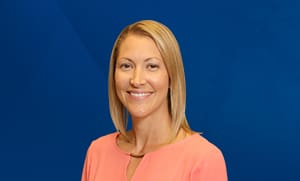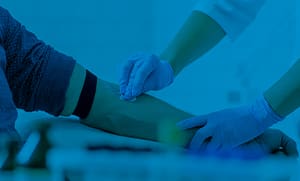Preventive Medicine
Dr. Jennifer Neville explains her approach to preventive medicine, some of the newer tests available, and her personal feelings on how preventive screenings save lives.
What is your approach to preventive medicine?
Every time I see a person in the office, as long as it’s not for an acute condition, I’m going through their preventive screenings. I’m making sure they’re up to date, so I am on top of that. Not everybody wants to get a colonoscopy or mammogram, and I’m not going to force a patient to get anything they don’t want to have. I’m going to educate them on what the test is, what we’re trying to prevent, and in the end, if they still don’t want to have the test, that’s their decision. It’s their body. But what I hope is that over time when we develop that relationship, trust is going to be there, and eventually, they’ll say, “Dr. Neville wants me to have this colonoscopy. I think I’m going to do it.” That’s really important for me.
What are some of the newer preventive tests?
There’s actually some newer tests out for colon cancer screening, like Cologuard, which is a stool test, that people are probably seeing commercials for. There are other options now, and that’s something that I discuss.
How does preventive medicine save lives?
I share my grandfather’s story with people. If he would have got his colonoscopy when he was supposed to, it would have been a small polyp that they could have taken out at the time of the procedure, and then it’s gone. If you leave it in there for 10 years, it could turn to cancer and then spread to other organs, and then you really have a mess to deal with. The whole idea is preventive. Also, with breast cancer if we find it very early, they do breast conservative therapy now. It’s a small lumpectomy maybe followed by some radiation, but they don’t have to do a total mastectomy anymore. It’s important to catch it early.
To learn more or schedule an appointment with Dr. Neville, please see her complete profile.

Meet Dr. Jennifer Neville
Find out more about Dr. Neville’s internal medicine practice.
Internal Medicine
Our internal medicine team diagnoses and treats acute and chronic conditions in adults. They also focus on helping patients prevent certain health issues.

